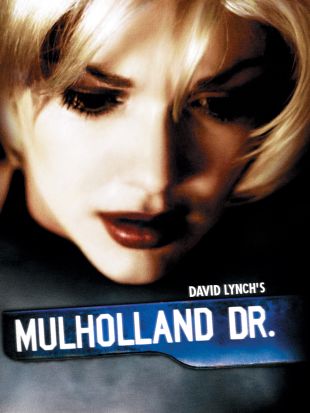
Early on in Mulholland Drive, a man sits in a Hollywood greasy spoon, relating a dream to a friend sitting across from him. The dream, he explains, took place in the same diner, only in the dream some unspeakably evil presence lived behind it. He's come here now to prove to himself that the dream wasn't real. After paying the check, he and his companion venture outside and walk around to the back of the building. Sure enough, an almost ludicrously hideous face appears from behind a cinder black wall, and the man faints dead away. The scene is pure David Lynch: Simultaneously silly and terrifying, it provides a clue of sorts to the film as a whole. Mulholland Drive operates according to the relentless logic of dreams -- the only kind of logic that matters to Lynch. Like some kind of reverse Occam's razor, the most outlandish explanation for any given situation is inevitably right. The film is full of repeated motifs (the diner is one) and shifting identities, all pivoting on Lynch's familiar obsessions -- sexy innocents ripe for corruption, mysterious strangers speaking in riddles, and sugary pop songs made over as haunting arias, to name a few -- but the connections only become apparent in the film's final third. Lynch plays it relatively straight in the beginning. When wholesome, fresh-faced Betty (Naomi Watts) and beautiful, amnesia-stricken Rita (Laura Elena Harring) embark on their plan to discover Rita's true identity, one almost believes that the answer will lie with the shadowy criminal syndicate that seems to be behind Rita's attempted murder, the near ruination of movie director Adam Kesher (Justin Theroux), and the activities of a hilariously inept hit man who has to keep shooting the witnesses to his bungled handiwork. But after the two women discover Diane Selwyn's corpse, the film's dream logic takes over, and suddenly no one is who they appear to be -- least of all Betty. Newcomer Watts' bold performance makes her eventual transformation (which is set in motion by a genuinely steamy love scene -- a rare thing in recent American movies) all the more stunning. Lynch seems to have benefited from developing the project for television, which isn't very forgiving of unstructured weirdness, and from finishing it thanks to French producers who were willing to indulge his more arcane tastes. Unlike Lost Highway, which felt like an incoherent mishmash of self-consciously spooky incidents, Mulholland Drive's madness has some method to it.
